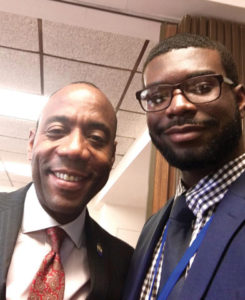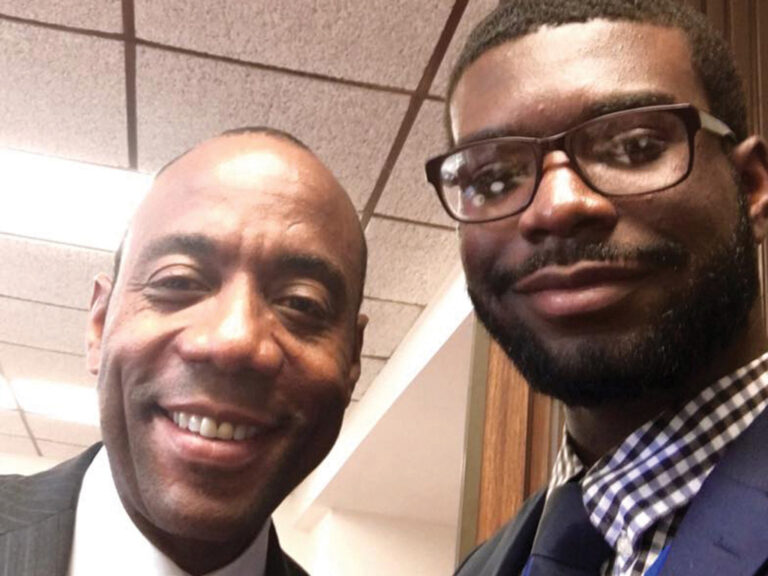When Ron Young ’18 came to Berea College in 2014, he planned to be a business major. But in his freshman year, his plans changed in Dr. Janice Blythe’s Food Studies class. “It was so amazing, learning about the food industry and food systems. I had never thought about food in that way,” he shares.
Since that discovery, he has pursued experiences to increase his knowledge of food-related issues, including two nationally-focused internships. On campus, his first step was to change his student labor position to be the Health, Wellness, and Nutrition Manager with the on-campus Thrive! program. In that role, Young planned health fairs, established programs focused on student health, designed innovative marketing techniques, and researched new nutrition programs.

In the summer of 2016, after his sophomore year, he was able to put many of those skills to use as the NAACP Public Policy Executive Intern for Health Department Programs. “I came into the NAACP with lots of hands-on experience that other people didn’t have,” Young said. One of the surprises in the selection process was in the final interview, when three of the five executives in the interview knew of Berea College. Assigned to the NAACP National Office in Baltimore, Maryland, for four months, Young was one of four interns who worked directly with President and CEO Cornell Brooks. In one aspect of his work, he researched food issues related to public policy as requested by President Brooks. “We interns provided the backbone of his research whenever he sat down to talk with people,” explains Young.
The Washington, D.C. native also worked on tool kits for national initiatives. These resources provide information and ideas for NAACP members to get involved on the local level. One kit empowered college campuses to plan health events. Another looked at the realities of obesity, especially given current food policy in the U.S.
His favorite part, though, was getting to work on his own project. President Brooks gave the interns free rein to work on an issue important to them, and Young pursued research on inequities in the food system. He created a manual outlining the role the NAACP can play in food system reform and was thrilled to learn the National Office plans to use it as a framework as the organization moves forward on food justice issues.
“The NAACP is the largest civil rights organization in the world and can play a part in alleviating these problems,” explains Young.
Last summer was a tense time to work with the NAACP. Young remembers people calling and asking what the NAACP was going to do about the rash of police brutality incidents across the country. “One Friday, when they told us we needed to leave because there were bomb threats at the national headquarters, it became really real,” recalled Young.
The NAACP internship left him hungering for more. After several interviews, he was selected for an internship with the Committee on Agriculture, Nutrition and Forestry in the U.S. Senate. In January 2017, he returned to his hometown to serve on Capitol Hill. He views that opportunity as a complement to his NAACP internship, offering a different perspective as he works to write the same policy he was previously trying to influence.
Young collaborates with senators and other policy staff to formulate legislation as part of the agriculture team of the ranking member of the Committee, Democrat Debbie Stabenow from Michigan. He has observed that the work of the Ag Committee is more bipartisan and less acrimonious than others. He thinks they understand the need for everyone to work together on this most basic issue of food.
The 2018 Farm Bill is a major focus of Young’s work. While approval is two years away, the Committee is in the first-year planning phase. “The Farm Bill is a major piece of legislation, is enacted for five years, and can directly affect whether people eat,” says Young about how his work can make a difference.
His new passion led him to change his major to Political Science and Agriculture. After graduation in 2018, Young plans to attend law school and return to Capitol Hill. “I have seen that lots of social issues are built into the law,” he said. By working to change food policy, he can make a real impact for good, and nurture the seed that was first planted in his freshman Food Studies class at Berea College.


